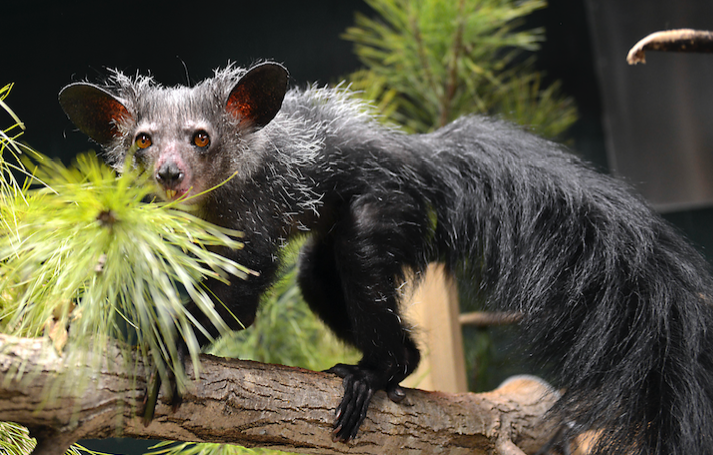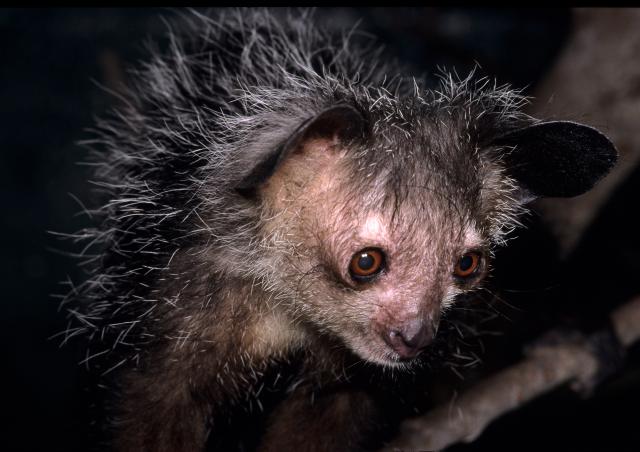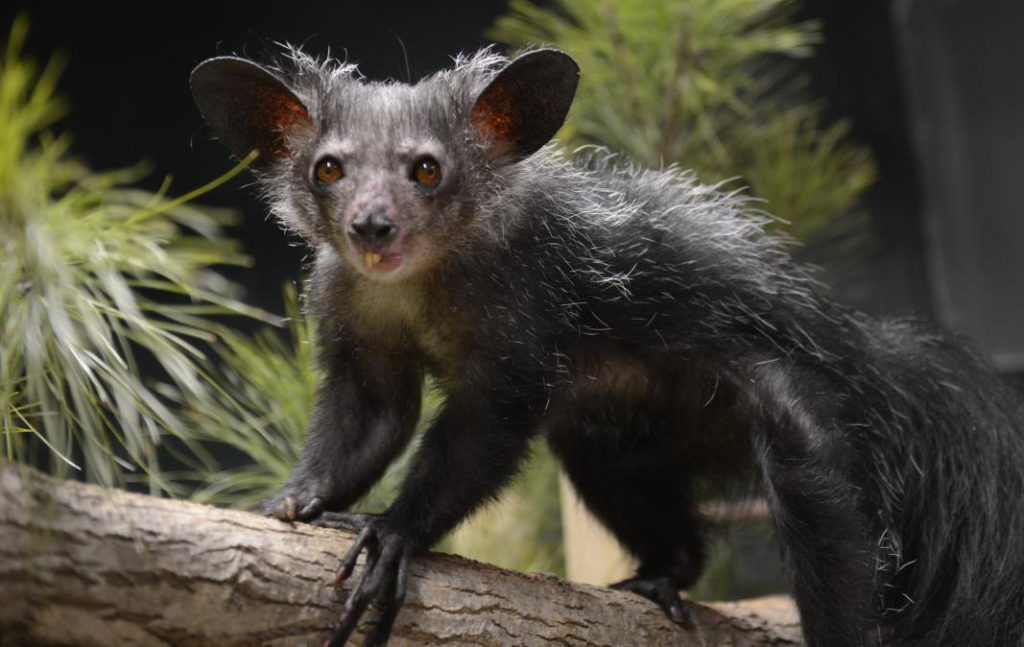New intensive care kennel elevates tender loving care (TLC) of DLC’s lemurs
Published June 4, 2019

Ozma, pictured here at 33 years of age. Ozma mothered five offspring — Goblin, Warlock, Ozony Avelo, Medusa, and Styx — who, in turn, produced descendants living around the world: the United States, Germany, the United Kingdom, and the Bailiwick of Jersey. Photo by David Haring in February 2018.
When a lemur dies at the Duke Lemur Center, there is a great sense of loss felt by our family of keepers, veterinarians, and an extended circle of others, including visitors who’ve forged special connections with our animals. On May 3, DLC matriarch Ozma the aye-aye – one of the DLC’s most popular tour path lemurs and one of eight founders of our aye-aye conservation breeding program – fell suddenly ill. At 34 years of age, Ozma was among the oldest lemurs in the world; thus the need for immediate life-sustaining therapies (and, later, palliative and end-of-life care) was critical.
Ozma was taken immediately to the DLC’s veterinary hospital, where our vet team was able to keep her much more comfortable than they could have previously thanks to our brand-new intensive care (ICU) kennel. The kennel was purchased and installed thanks to $10,000 in donations that were contributed by hundreds of donors during our Giving Tuesday fundraising effort in November 2018. The ICU kennel regulates temperature and oxygen more comfortably and effectively than administering pure oxygen through a mask, vastly improving a lemur’s comfort and care – and, in Ozma’s case, quality of life in an elderly lemur’s last hours or days.
The DLC’s new ICU kennel can also regulate temperature and humidity and works as a nebulizer to provide medication through the air. When an animal is critically ill, it can lose its ability to maintain its temperature or spend precious energy trying to stay warm. A temperature-controlled environment with the ability to supply humidity or nebulized medications can be the difference between life and death in these situations.
Similarly, infants who are ill or have been rejected by their mothers do not have the ability to maintain their body temperature, and one of the first causes of infant mortality is hypothermia – hence the critical importance of having a good ICU kennel at the ready for each birth season, in addition to providing year-round care for the DLC’s geriatrics.
“I sleep easier knowing the ICU kennel is here when we need it,” says DLC veterinarian Bobby Schopler. “We’re so thankful to have this valuable tool to provide better care of the lemurs in serious health situations.”
Sadly for Ozma, a full examination, lung x-rays, and a consultation with a radiologist indicated cancer in various locations throughout her body; and ultimately our beloved aged aye-aye was humanely euthanized. She lived a full, long life here at the Lemur Center and is missed by all who knew her. We rest assured knowing she was bright-eyed and vigorous up to the end, and that thanks to the ICU kennel, her last hours were as comfortable and pain-free as they could possibly have been.
THANK YOU to everyone who contributed toward the DLC’s ICU kennel campaign! Your support will bring comfort to lemurs at the DLC for years to come.

Ozma, pictured here at age 17. Photo by David Haring (January 2002).
SPECIAL NOTE: The DLC’s vet team is currently in need of a new x-ray system, which requires a contribution of $110,000 for the equipment, software, and installation. If you or anyone you know has the capacity to consider this significant gift, please contact the DLC’s Development Officer, Mary Paisley, at 919.401.7252 or mary.paisley@duke.edu.

Ozma in February 2018. When she died this spring at age 34, Ozma was one of the oldest lemurs in the world. Photo by David Haring.

